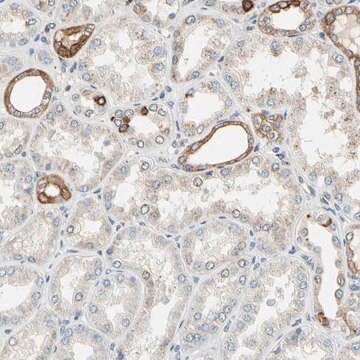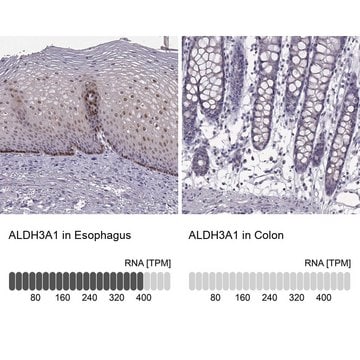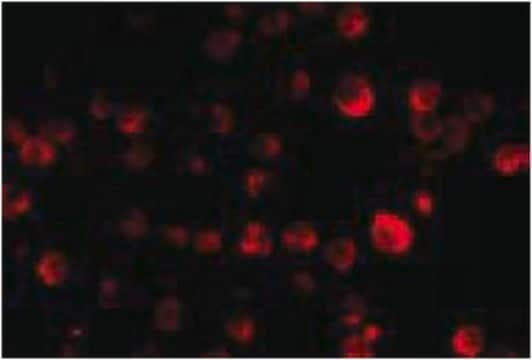ABN253
Anti-PTGDS Antibody
from rabbit
Sinónimos:
Prostaglandin-H2 D-isomerase, Beta-trace protein, Cerebrin-28, Glutathione-independent PGD synthase, Lipocalin-type prostaglandin-D synthase, Prostaglandin-D2 synthase, PGD2 synthase, PGDS, PGDS2
About This Item
Productos recomendados
biological source
rabbit
Quality Level
antibody form
purified antibody
antibody product type
primary antibodies
clone
polyclonal
species reactivity
human
species reactivity (predicted by homology)
rhesus macaque (based on 100% sequence homology)
technique(s)
immunohistochemistry: suitable
western blot: suitable
NCBI accession no.
UniProt accession no.
shipped in
wet ice
target post-translational modification
unmodified
Gene Information
human ... PTGDS(5730)
Categorías relacionadas
General description
Specificity
Immunogen
Application
Neuroscience
Developmental Signaling
Quality
Western Blot Analysis: 0.2 µg/mL of this antibody detected PTGDS in 10 µg of human testis tissue lysate.
Target description
Physical form
Storage and Stability
Analysis Note
Human testis tissue lysate
Other Notes
Disclaimer
¿No encuentra el producto adecuado?
Pruebe nuestro Herramienta de selección de productos.
Storage Class
12 - Non Combustible Liquids
wgk_germany
WGK 1
flash_point_f
Not applicable
flash_point_c
Not applicable
Certificados de análisis (COA)
Busque Certificados de análisis (COA) introduciendo el número de lote del producto. Los números de lote se encuentran en la etiqueta del producto después de las palabras «Lot» o «Batch»
¿Ya tiene este producto?
Encuentre la documentación para los productos que ha comprado recientemente en la Biblioteca de documentos.
Nuestro equipo de científicos tiene experiencia en todas las áreas de investigación: Ciencias de la vida, Ciencia de los materiales, Síntesis química, Cromatografía, Analítica y muchas otras.
Póngase en contacto con el Servicio técnico








